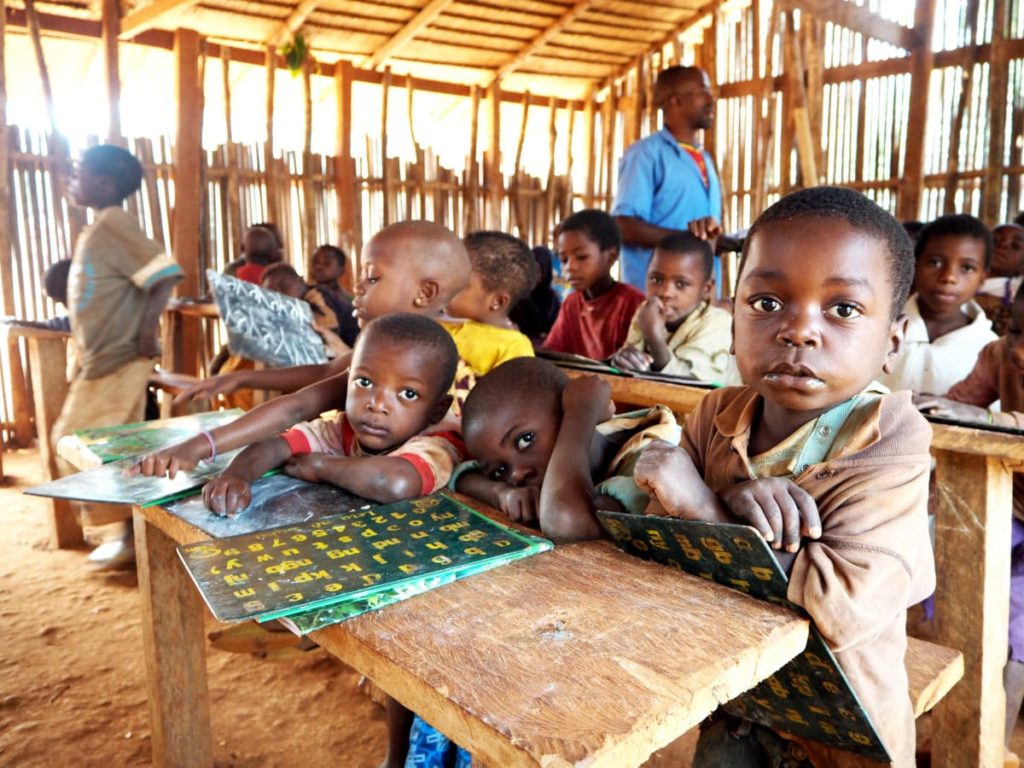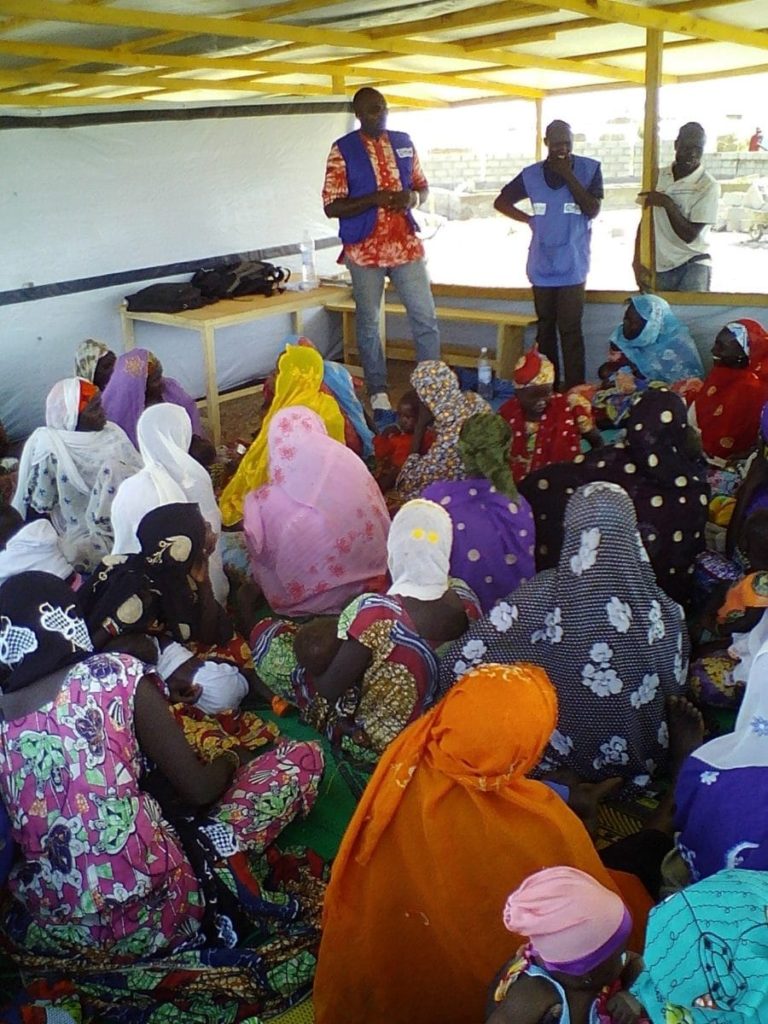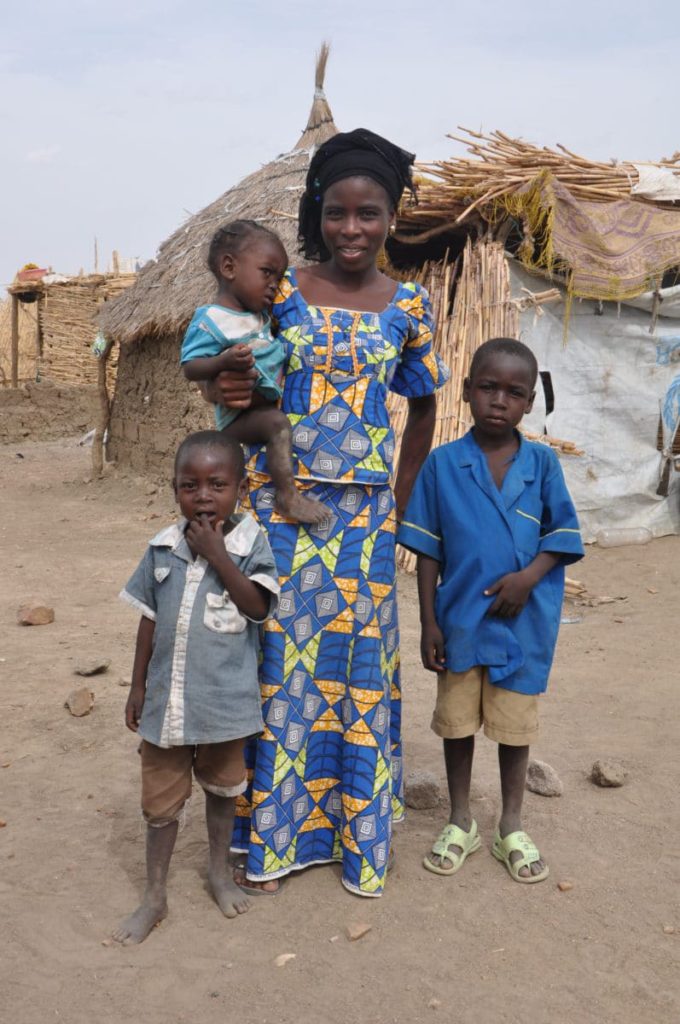Stella Cotorcea, Plan International Ireland’s Programme Support Officer reports live from Cameroon.
This harmony has been compromised by the increasing influx of refugees and internal displacement as a result of violent conflict in the neighboring Central African Republic and Nigeria. The east and north side of Cameroon is said to host nearly 260,000 Central African refugees, some of them since the crisis of 2003, and a new wave – since the armed conflict in 2013. With the Nigerian based militant group, Boko Haram, waging war on civilians, nearly 90,000 Nigerians found refuge in the Far North region of Cameroon, either based in the camp of Minawao, or scattered among the host communities that were already strained by poverty.
Plan International has supported the empowerment of Cameroonian communities since 1996, with offices in Yaoundé and in other several areas of the country. Since 2011, Plan International has been providing assistance in the most affected districts to respond to the population movement crisis. Children and communities, both displaced and local, have worked with our team to facilitate life-saving assistance for themselves and those most hard to reach, and to access protection, education, and economic empowerment. Committed to the ambition of long-term growth of the country, Plan paralleled this work with capacity support to local service providers and regional government to meet the increasing local needs.
In early January this year, I have joined the team in Cameroon in designing programmes that address the immediate and long-term needs of displaced populations and affected host communities. While Yaoundé streets were maintaining the festive atmosphere of the season’s holidays, our team was assessing the needs of local girls and boys, adolescents and young people, as well as their families among host and displaced populations in the Far North region, to inform our future programming.
The needs are very high, as we concluded, both in terms of immediate life-saving support and in access to basic services, including health, nutrition, protection and education.

One day, as I was waiting for my colleague to pick me up from the hotel, I witnessed a local man struggling to push his un-cooperating vehicle along the street. A second later a man who was passing by lent a hand in pushing the automobile, and a few more seconds later there were five other men, not connected in any way, pushing together. And it worked. The infamous vehicle moved! Much like these men, Plan International joined efforts with other partner organisations in Cameroon to develop a multi-sectoral approach to humanitarian assistance and to address the donor community with thoroughly coordinated programme interventions. Like in the automobile episode, Plan and partner organisations, local and international, are “pushing” the crisis through joint efforts that will cover a greater range of needs, be it in health, nutrition, sanitation, education, or livelihoods.

The automobile episode also made me reflect about the local philosophy, tacitly agreed among Cameroonians, to help one another when in need – a behaviour I remarked among my colleagues in the Cameroon office as well. It is based on this philosophy, I prefer to think, that Plan International centres its programmes on the capacity of local communities to help themselves and those in greater need, including newcomers, when affected by crises.
For example, our team is very proud of the Plan International assisted VSLA (Village Saving Loans Associations), which are village based groups, formed with the aim to engage in self-reliant productive activities, this way supporting themselves and the community. These groups may be of farmers or artisans who sell the fruits of their work, and manage finances in ways that contribute to their long-term growth. They manage to make savings, lend money to other groups, while also contributing to local families becoming more self-sufficient. Later, they may invite new members, or even create new groups that would be tutored by the more experienced ones. Furthermore, in this activity we work very closely with community-based NGOs, promoting their growth and capacity strengthening. To further diversify local income, we complement the village saving and loan projects with agro-pastoral assistance, such as goat rearing projects, which help families in need to secure their food and nutrition needs. To date, Plan International has supported nearly 1,700 village saving and loan groups in Cameroon, catering for over 35,700 community members (including 32,130 women), who have managed to save over €4,600.

Research in different countries has shown that women control more household income, and children benefit as a result of more spending on food and education (World Bank, 2011). Cameroonian women are no exception. I believe that ultimately, women’s economic empowerment benefits the community overall, including men. This may stem from their motherhood, when this is the case, but also from their understanding of what it is like to be left behind. In one of his songs, the Cameroonian-born and internationally renowned musician, Richard Bona, pays tribute to his gentle mother who raised him well, in spite of all odds. It is an ode to women in Cameroon, mothers or not, who, Bona reckons, need recognition and encouragement to become self-reliant.
With women under-represented in the Cameroonian economic realm, Plan International prioritizes young women in VSLA, as well as in vocational training and professional insertion support. Empowering young people, especially young women, is an area that is increasingly recognized as an opportunity for a better future. Plan International is willing to pursue this aim, as is previewed in the organisation’s upcoming global strategy for the years to come. Much like the soft voice of Bona, who has managed to reach many hearts across the world, the soft voices of girls and young women must be heard and given a chance to contribute to the growth of their communities, and the country overall.